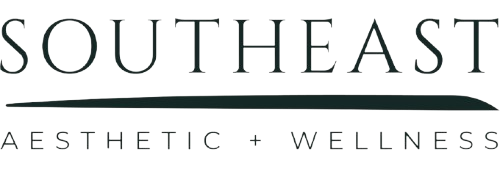When it comes to estrogen, the commonly held belief is that women should only be concerned about its decline during menopause. However, the reality is that high estrogen levels, often termed “estrogen dominance,” can pose significant health risks at any stage of a woman’s life.
This imbalance can lead to a range of issues, from irregular periods to an increased risk of certain cancers. The good news is that nutrition and diet can be powerful tools to restore hormonal balance. In this blog post, we’ll explore how adopting a Mediterranean-style diet, rich in plant-based, nutrient-dense foods, can help support healthy estrogen metabolism.
Understanding Estrogen Dominance: Estrogen dominance, characterized by an excess of estrogen relative to progesterone, can be caused by hormonal disorders, high stress levels, exposure to environmental toxins, and diets rich in processed foods and sugars.
Supporting Detoxification and the Liver: The liver plays a crucial role in detoxifying estrogen. Consuming a variety of nutrient-dense foods supports optimal liver function. It’s essential to obtain micronutrients from food before considering supplements, as overconsumption can strain the liver.
Promoting Gut Health: After detoxification in the liver, estrogen undergoes further processing in the gut. Maintaining gut health through fiber-rich foods, probiotics, and proper hydration ensures the efficient elimination of metabolized estrogen.
Foods that Support Estrogen Balance:
-
Fiber: Found in fruits and vegetables, fiber binds to estrogen, reducing its absorption and encouraging excretion. Aim for 21-28 grams of fiber daily.
-
Cruciferous Vegetables: Cabbage, broccoli, kale, and others contain diindolylmethane (DIM), which supports estrogen detoxification.
-
Soluble and Insoluble Fiber: Found in root vegetables, legumes, and whole grains, these fibers bind to estrogen and aid in its elimination.
-
Probiotic Foods: Yogurt, sauerkraut, and kimchi support gut flora, assisting in estrogen detoxification.
-
Vitamin C: Found in bell peppers, kiwi, and citrus fruits, vitamin C may increase progesterone levels, helping balance estrogen.
-
Phytoestrogens: Present in flax seeds, legumes, garlic, and green tea, these plant compounds compete with natural estrogen for receptor sites.
-
Lean Protein: Animal and plant-based proteins, such as soy, quinoa, and tempeh, play a crucial role in hormone regulation.
-
Healthy Fats: Avocado, olive oil, and fatty fish provide essential fats crucial for hormone production.
-
Hydration: Drinking enough water aids in fiber digestion, prevents constipation, and flushes out toxins, including excess estrogen.
-
Choose Organic: Opt for organic foods to reduce exposure to xenoestrogens, which mimic estrogen.
Foods and Practices to Avoid:
-
Refined Carbohydrates and Added Sugars: Promote unstable blood sugar levels.
-
Caffeine: Believed to increase estrogen levels.
-
Non-Organic Soy: Contains pesticides that may interfere with estrogen metabolism.
-
Alcohol: Taxes the liver and interferes with estrogen metabolism.
-
Toxins: Avoid unnecessary drugs and over-the-counter medicines, as well as non-stick cookware and microwaving in plastic.
Embarking on the estrogen dominance diet is an opportunity to nourish your body and achieve hormonal balance. The Mediterranean-inspired approach offers a sustainable and enjoyable lifestyle, emphasizing a diverse range of nutrient-dense foods. By making small changes, such as incorporating fiber-rich foods and cruciferous vegetables, and staying hydrated, you can embark on a journey towards hormonal harmony and optimal well-being—one delicious, nutritious bite at a time. Your body will thank you for prioritizing its health and vitality. For more information follow along with @southeastmedangel as she digs deeper on setting the foundation for your health and wellness journey at Southeast Aesthetic + Wellness! Give her Beauty Biohacking Channel a follow too 👍






